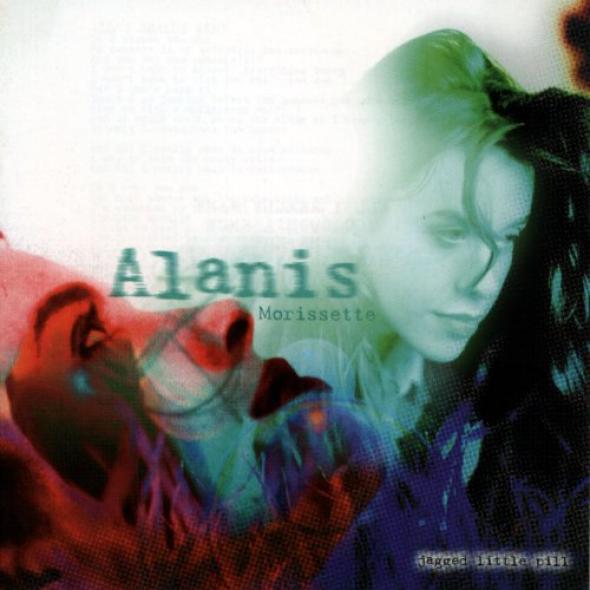At a recent concert, Taylor Swift pulled Alanis Morissette onstage with her, and they sang “You Oughta Know,” Morissette’s 1995 anthem about being that embarrassing person who makes drunken, angry calls to your ex who then inevitably tells his or her partner that it was just a telemarketer. Many Swift fans in the audience were not aware of who Morissette is.
This display of ignorance “will either make you feel old,” writes Bobby Finger of Jezebel, “or inspire you to become a middle school teacher who assigns all your students to write an essay on ‘Jagged Little Pill.’ ”
But there is a third feeling to be felt here: I am happy for these teenagers who don’t know who Alanis Morissette is. I envy you, teens.
Alanis Morissette was a singer who, in the mid-1990s, capitalized on a small but growing trend of “angry woman” rock acts, such as L7 and Hole, and made an absolute killing, selling 33 million copies of her album Jagged Little Pill worldwide. But while her predecessors wrote songs protesting sexual harassment and rape, Morissette’s big hit protested guys who break up with you.
Long before the terms “nice guy syndrome” and “friend zone” were created to describe men who think they are entitled to have a relationship with someone just because they do nice things for them, Morissette tore up the charts with a song about a woman who thinks the same way. “Would she go down on you in a theater?” the narrator of “You Oughta Know” plaintively asks about the woman her ex chose instead. “And would she have your baby?” Begging and clumsy emotional blackmail isn’t a good look on anyone, male or female.
There’s nothing wrong with songs told from the perspective of unsavory characters, or else half of the Johnny Cash catalog would have to go into the trash. But weirdly enough, “You Oughta Know” was held up in 1995 as some kind of feminist anthem of empowerment, an angry yalp of rebellion from ladies who had enough. And certainly, Morissette throws her back into it, growling and singing with all her might. But it’s still a song about refusing to take no for an answer. This is a “yes means yes” world. There’s no reason for the teens of this world to know anything about Alanis Morissette.
